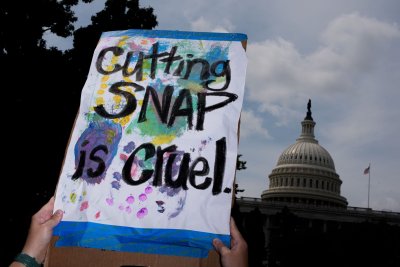USDA orders halt to SNAP benefits for 42 million people

Nov. 9 (UPI) — The Trump administration has ordered states to stop distributing benefits to 42 million food insecure Americans, including critical nutrition and aid to the Women, Infants and Children program.
The move follows an order last week by two federal judges that ordered the administration to provide the benefits that hungry children rely on.
A memo from the U.S.D.A. Food and Nutrition Service directs states to “immediately undo any steps taken to issue” full payments to recipients of the Supplemental Nutrition Assistance Program
The Administration has called on states to issue partial payments, about 65% of a typical monthly SNAP benefit, to recipients.
The memo threatens states with total cuts in federal funding they need to pay SNAP administrative costs if they don’t heed the warning.
As of Sunday morning, officials in many states said they were unsure how the USDA order will affect their aid, the fate of which has been uncertain as courts and the Trump administration volley back and forth over the amount to be distributed, if any.
Washington funds SNAP, but the federal government and states share the administrative costs of distributing the benefits to recipients.
Friday night, Supreme Court Justice Ketanji Brown Jackson blocked a Rhode Island judge’s order that, earlier in the week, directed the Trump administration to issue full SNAP benefits for the month of November.
The Trump administration said Friday that it was working to distribute the aid, and it appealed to the Supreme Court to block the Rhode Island judge’s order.
The SNAP program provides aid to more than 42 million Americans, including elderly people, children and low-income families.
It has been at the center of the historically long government shutdown, as recipients have been unsure, often on a day-to-day basis, whether they are going to receive the funds they need to buy food they need to survive.
